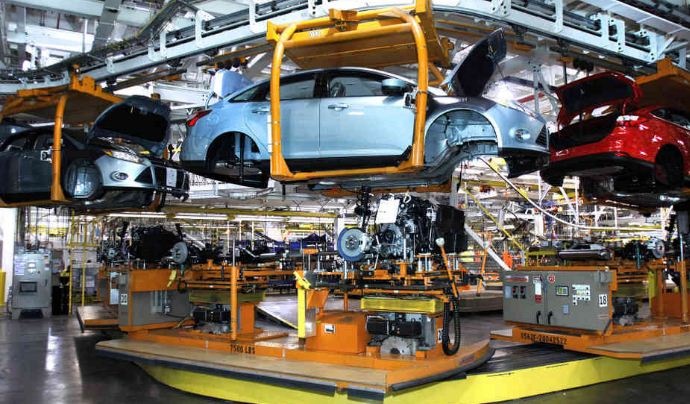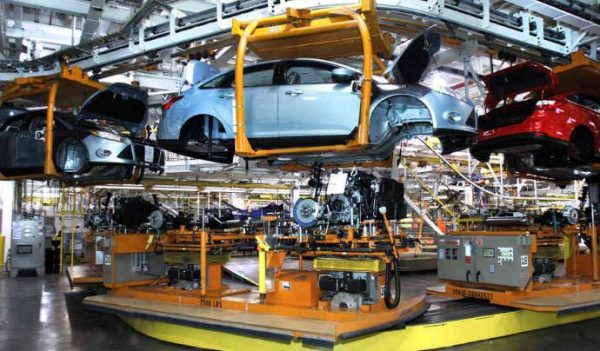We all like our cars sparkling clean and in the right physical shape for the roads. But we aren’t always able to get rid of the dirt on our cars by ourselves; in those instances, it’s either because the mud splatterings and smudges on our vehicles are too tough or widespread to remove, or we just don’t have the time to do the washing ourselves. This, in a nutshell, is why we have car washes.
As the population of our cities and towns swell, the demand for vehicles is growing with it. This means more cars and buses on out streets, and ultimately, more dirty vehicles to wash. If you’re thinking about setting up a car wash any time from now, you’ll be pleased to know that the future is looking good for your intended line of business.
While we’ve pointed out the fine prospects for car cleaning services, we also note that you’ll only reap the benefits from it if your business is positioned to do so. In practical terms, this means you’ll have to get the setup and management processes right. The good news is, that’s what this article is about.
Let’s get down to the nitty-gritty of this.
-
Learn how it’s done
The pace with which you’ll get on with starting up a car wash will depend in part on how knowledgeable and experienced you are in the business. There’s also the small matter of funding and the availability of a good enough location, to begin with, but we’ll talk about those shortly.
If you have prior experience, perhaps as an employee or partner at another car wash, you won’t have as much to learn as, say, a person who is totally new to the business. But if you don’t have such experience, you can visit a number of car cleaning centres and look at their operations. Talk to people who run a similar venture, and learn as much about it as you can.
-
Determine what the demand is like
We have already pointed out that there’s a general upward trend in the demand for car wash services. But this doesn’t mean that the supply of this service is evenly distributed. Some districts will have more than they need; others won’t have a single centre within several miles of them.
This is one of a number of things you should consider when you’re looking for a location that suits your business well. You don’t want to set up in a barely occupied area with only a few cars driving by in a day. You need to find a place that has a want for your services.
-
Study your competitors
Prepare for competition; you’re going to face it at some point, if not from the start.
If you’ve decided on your location, the next thing you should do (apart from working on the site) should be to study your potential competitors- that is, other car wash businesses within half a mile (or more) of your chosen business location. Find out what they’re good at, and plan to match or better them at it. Note their weaknesses too, and come up with an offer that doesn’t have this fault.
However, you should avoid areas that already have too many car wash facilities within and around them. If there are too many people offering the same service to a market that isn’t expanding very fast, some of those service providers will be smothered by the competition. More often than not, it’s the newer and smaller ones that are choked the most, and thus, they are most likely to fail in such environments.
-
Choose a location
The two steps prior to this one are actually things you should do in the lead up to selecting a location for your business. But there are other things to consider. For example, it’s a good idea to have your car wash close to (or along) a road that’s regularly plied by vehicles. The roads should be in good enough condition to allow motorists to access your business without much difficulty.
Remember that water supply and the availability of power are basic needs for your business. Go for a location that has these things.
There’s more about picking the best location for your business here.
-
Write a business plan
Your business plan will contain your vision for your business, what the business is and what its services are, information about what the market for your service looks like, your projected revenue and expected expenditure for a period before and after setting up, and other details closely related to the venture.
For more on what your business plan should contain, see our article, Six Things You Should Never Leave Out of Your Business Plan.
-
Register your business
Register your business with the Corporate Affairs Commission (CAC), and obtain a Tax Identification Number (TIN) from the Federal Inland Revenue Service (FIRS). Check with the authorities in your state for any charges and regulatory obligations you’ll need to abide by as a business located within their boundaries.
-
Develop your site
This could involve anything from simply repainting rooms, to constructing a whole building from scratch. What it will certainly require is that you make the garage and open areas in the car wash easily navigable by vehicles. Have a borehole for your water needs.
Make your car wash as neatly laid out and convenient for your would-be customers as you can. Many car wash centres fail to take cognisance of this. You shouldn’t let them be an excuse to not make your venture as orderly and attractive as possible.
-
Acquire equipment
Some of the equipment you have to get for your car wash are the pressure washer, brushes, buckets, and car shampoo. You’ll need much more than this if you’re setting up a bigger centre, but the items listed are the basic ones you should have.
-
Promote your business
There are a good number of channels through which you can get the word out about your business, and attract customers. You can speak about and share leaflets in social gatherings and groups to which you belong. You may also have advertisements on radio, and run campaigns on social media aimed at making it visible to more people.


